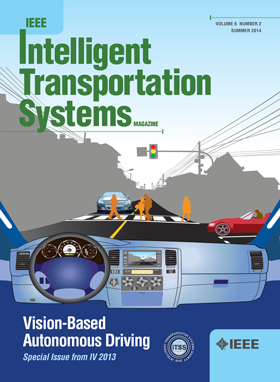Smart Battery Swapping Control for an Electric Motorcycle Fleet With Peak Time Based on Deep Reinforcement Learning
IF 8.4
1区 工程技术
Q1 ENGINEERING, CIVIL
IEEE Transactions on Intelligent Transportation Systems
Pub Date : 2024-10-07
DOI:10.1109/TITS.2024.3469110
引用次数: 0
Abstract
This study proposes a deep Q-network (DQN) model for electric motorcycles (EMs) and a multi-agent reinforcement learning (MARL)-based central control system to support battery swapping decision-making in the delivery business. We aim to minimize expected delivery losses, especially in scenarios where delivery requests are randomly and independently generated for each EM, with fluctuating time distributions and limited BSS capacity. Our MARL benefits from a reservation mechanism and a profit-aggregated central system, which greatly reduces the complexity of MARL. Furthermore, to address the inherent non-stationary problems of MARL, we propose a decentralized agent-based MARL framework, named Decentralized Agents, Centralized Learning Deep Q Network. This framework, leveraging a tailored learning algorithm, achieves peak-averse behavior, reducing delivery losses. Additionally, we introduce a hybrid approach that combines the resulting DQN algorithm for determining when to visit the BSS, and a greedy algorithm for deciding which BSS to visit. Computational experiments using real-world delivery data are conducted to evaluate the performance of our algorithm. The results demonstrate that the hybrid approach maximizes the overall profit of the entire EM fleet in a challenging environment with limited BSS capacity.基于深度强化学习的峰值时间电动摩托车队智能电池更换控制
本研究提出了电动摩托车(EM)的深度 Q 网络(DQN)模型和基于多代理强化学习(MARL)的中央控制系统,以支持快递业务中的电池更换决策。我们的目标是最大限度地减少预期配送损失,尤其是在每辆电动摩托车的配送请求都是随机独立生成的、时间分布不稳定且 BSS 容量有限的情况下。我们的 MARL 得益于预约机制和利润汇总中央系统,这大大降低了 MARL 的复杂性。此外,为了解决 MARL 固有的非稳态问题,我们提出了一种基于分散代理的 MARL 框架,名为 "分散代理、集中学习深度 Q 网络"。该框架利用量身定制的学习算法,实现了避峰行为,减少了传输损失。此外,我们还引入了一种混合方法,将由此产生的用于决定何时访问 BSS 的 DQN 算法与用于决定访问哪个 BSS 的贪婪算法相结合。我们使用真实世界的传输数据进行了计算实验,以评估我们算法的性能。结果表明,在 BSS 容量有限的挑战性环境中,混合方法能使整个电磁机群的总体利润最大化。
本文章由计算机程序翻译,如有差异,请以英文原文为准。
求助全文
约1分钟内获得全文
求助全文
来源期刊

IEEE Transactions on Intelligent Transportation Systems
工程技术-工程:电子与电气
CiteScore
14.80
自引率
12.90%
发文量
1872
审稿时长
7.5 months
期刊介绍:
The theoretical, experimental and operational aspects of electrical and electronics engineering and information technologies as applied to Intelligent Transportation Systems (ITS). Intelligent Transportation Systems are defined as those systems utilizing synergistic technologies and systems engineering concepts to develop and improve transportation systems of all kinds. The scope of this interdisciplinary activity includes the promotion, consolidation and coordination of ITS technical activities among IEEE entities, and providing a focus for cooperative activities, both internally and externally.
 求助内容:
求助内容: 应助结果提醒方式:
应助结果提醒方式:


